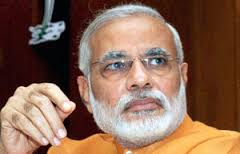
These Indian American groups, who have been in the forefront of the anti-Modi campaign for more than eight years now and have been successful in convincing the US to deny an American visa, however, noted that some of the politicians who signed on to the letter to Obama against Modi last year, now have come under pressure to deny having signed it.
One letter was signed by 25 Rajya Sabha members and the other by 40 Lok Sabha members written on November 26 and December 5, 2012 respectively and re-faxed to the White House on Sunday.
Meanwhile, the MPs decision to write a letter to Obama on an internal issue, has been described by The Washington Post as, almost unthinkable.
"It is almost unthinkable that Indian lawmakers would appeal to the United States to take a stand on an internal matter.
Most Indian politicians, many of whom still nurse a Cold War-era suspicion of Washington, would bristle at the very thought of it," The Washington Post reported.
"It couldn't have been easy, then, for 65 members of India's parliament to fax a letter to President Obama on Sunday requesting that his government not grant a visa to the controversial Hindu nationalist politician Narendra Modi, the chief minister of the state of Gujarat," the daily said.
The group of Indian Americans, who worked for several years convincing MPs for such a move, have justified writing a letter to Obama.
"Human rights are universal. he victims of Gujarat pogrom have not received justice even after a decade while the person responsible might become the candidate for PM," said Shaik Ubaid president of ImanNet and one of the founder of the Coalition Against Genocide.
"India took a moral stand in "internal affairs' of other countries, such as against apartheid in South Africa and even after riots against Indians in Fiji, so why cannot President Obama be involved. After all Mr Rajnath brought the issue to the US, coming with a begging bowl for visa and a laundry bag with Modi's dirty linen," he said.
Ubaid brushed off the BJP attacks on the letter that one MP has backtracked. "It is a desperate diversionary tactic by the Modi camp. Politicians "flip flop" even in the US, I was expecting more to come under pressure. The issue is Modi. The whole episode shows Modi is a stigma and liability for India, Gujarat, Hinduism and even for BJP," Ubaid said. In another statement, the Coalition Against Genocide, hailed the letters.
"The letters represent an unprecedented move by MPs from various parties belonging to both houses of Parliament, in writing a candid missive to the US President on gross violations of human rights violations committed within India's borders," it said.






Comments
Add new comment